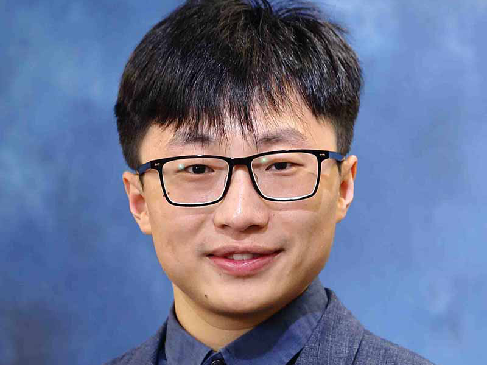Yu Li
Affiliated Assistant Professor of Computational Biology
Research Interests
Professor Li Yu works at the intersection between machine learning, healthcare and bioinformatics, developing new machine learning methods to resolve the computational problems in biology and healthcare. Professor Li has works published in top venues, such as Nature Biotechnology, Nature Methods, Nature Computational Science, Nature Communications, and top machine learning as well as computational biology conferences. In 2022, he was selected to the Forbes 30 Under 30 Asia list, Healthcare & Science.

- Ph.D. in Computer Science, King Abdullah University of Science and Technology (KAUST), Kingdom of Saudi Arabia
- M.Sc. in Computer Science, King Abdullah University of Science and Technology (KAUST), Kingdom of Saudi Arabia
- B.Sc. in Biosciences, University of Science and Technology of China (USTC), China
- Accurate RNA 3D structure prediction using a language model-based deep learning approach. T Shen, Z Hu, S Sun, D Liu, F Wong, J Chen, J Wang, L Hong, Y Wang, J Xiao, L Zheng, T Krishnamoorthi, I King, S Wang#, P Yin#, J Collins#, Y Li#. Nature Methods, 2024.
- Accurate RNA 3D structure prediction using a language model-based deep learning approach. T Shen, Z Hu, S Sun, D Liu, F Wong, J Chen, J Wang, L Hong, Y Wang, J Xiao, L Zheng, T Krishnamoorthi, I King, S Wang#, P Yin#, J Collins#, Y Li#. Nature Methods, 2024.
- Deep generative design of RNA aptamers using structural predictions. F Wong, D He, A Krishnan, L Hong, A Wang, J Wang, Z Hu, S Omori, A Li, J Rao, Q Yu, W Jin, T Zhang, K Ilia, J Chen, S Zheng, I King, Y Li#, J Collins#. Nature Computational Science, 2024.
- Fast, sensitive detection of protein homologs using deep dense retrieval. L Hong*, Z Hu*, S Sun#, X Tang*, J Wang, Q Tan, L Zheng, S Wang, Sheng X, I King, M Gerstein#, Y Li#. Nature Biotechnology, 2024.
- USPNet: unbiased organism-agnostic and highly sensitive signal peptide predictor with deep protein language model. J Shen, Q Yu, S Chen, Q Tan, J Li, Y Li#. Nature Computational Science, 2023.
- The High-dimensional Space of Human Diseases Built from Diagnosis Records and Mapped to Genetic Loci. G Jia*, Y Li*, X Zhong, K Wang, M Pividori, R Alomairy, A Esposito, H Ltaief, C Terao, M Akiyama , K Matsuda, D Keyes, H Im, T Gojobori, Y Kamatani, M Kubo, N Cox, X Gao#, A Rzhetsky#. Nature Computational Science, 2023.
- Deep autoencoder for interpretable tissue-adaptive deconvolution and cell-type-specific gene analysis. Y Chen*, Y Wang*, Y Chen, Y Cheng, Y Wei, Y Li, J Wang, Y Wei, TF Chan#, Y Li#. Nature Communications, 2022.